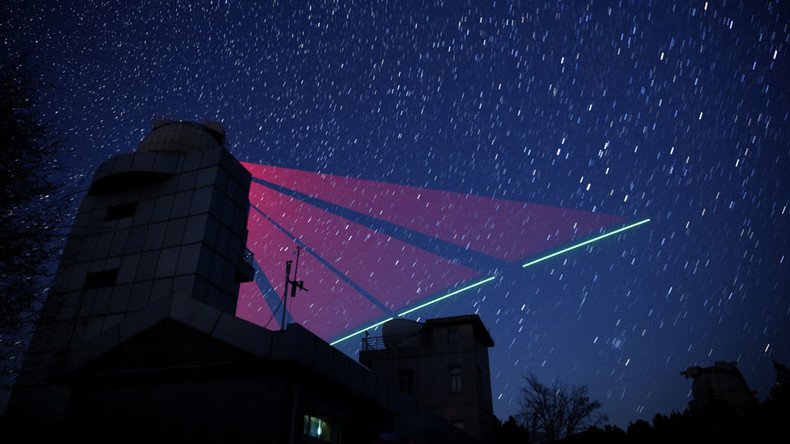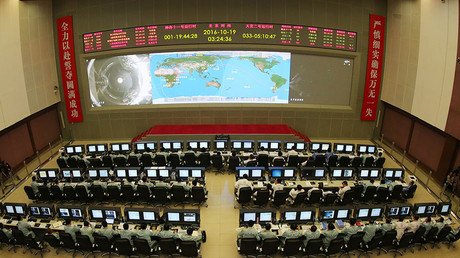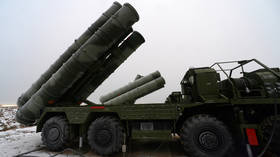China to establish intercontinental ‘hack-proof’ quantum links with Australia, Europe

Bolstered by the success of its first quantum communications satellite, China is eyeing the next steps in a quest to make a secure global network. It plans a series of intercontinental quantum distribution experiments with Australia and Europe.
China is a pioneering nation in bringing quantum cryptography into Earth’s orbit with its Quantum Experiments at Space Scale (QUESS) satellite, which it launched almost a year ago. QUESS, also dubbed Micius after an ancient Chinese philosopher, is a proof-of-concept project, which demonstrated that quantum communication is possible over a distance of over a thousand kilometers.
The mission is planned to last at least two years, and Chinese scientists are planning for both new experiments with QUESS and future launches of better quantum communication satellites, Xinhua news agency reported on Thursday.
By the end of August, the satellite will be used to establish quantum communication across continents, linking China with a ground station in Graz, Austria, told the agency Pan Jianwei, lead scientist of QUESS and an academician of the Chinese Academy of Sciences.
Further experiments this year will evolve ground stations in Germany and Italy, Pan added, bringing the project closer to the planned Asian-European secure communication network. They are to confirm the compatibility of the equipment used by Chinese scientists with that used by other nations, he said.
China hopes that the technology would eventually allow for a global quantum communication network with a constellation of satellites providing the service. This however will require overcoming many limitations it currently has, Chief Commander of QUESS Wang Jianyu told Xinhua.
For instance, the current satellite can only establish a quantum link with the ground when there is no interference from the Sun, i.e. when the spacecraft is in Earth’s shadow. Only after this limitation is dealt with can satellites be placed on more practical higher orbits or work in constellations, he said.
“When Micius flies over China, the experiment window is about 10 minutes," said Wang. “But if we have a satellite in orbit at 10,000km, the time for quantum key distribution could be several hours. And if we have a satellite in orbit at 36,000km, it can cover a third of the Earth all the time.”
“To increase the coverage, we plan to send satellites to higher orbits and construct a satellite constellation, which requires developing many new pieces of technology,” he said.
Quantum cryptography utilizes quantum effects to secure a line of communication. QUESS uses a technique called quantum key distribution, which ensures that any attempt of a third party to gain knowledge of a key used to encrypt and decrypt messages would be noticed by the communicating parties, because the act of measuring a quantum system inevitably alters it.
The satellite generates secret keys and sends them to two ground stations via entangled pairs of photons, where they are used to establish secure communication between the two locations.













